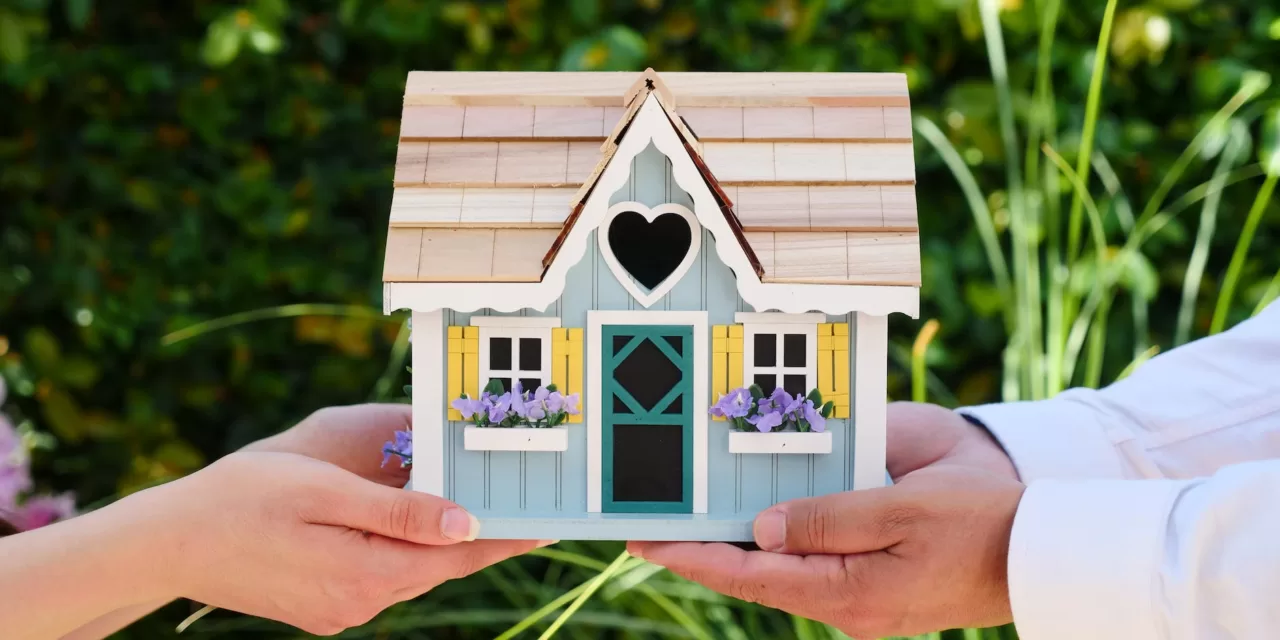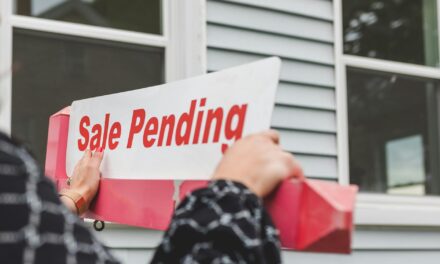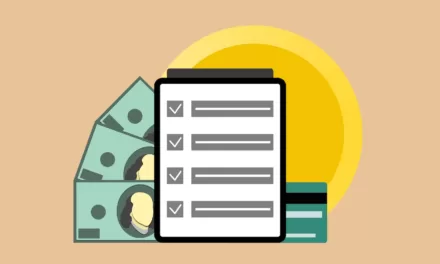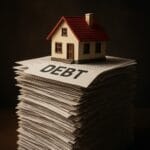In this post, we will cover whether it is best to pay off your mortgage early, but first, here is our disclosure.
Disclosure: This post may contain affiliate links, meaning we earn a commission on purchases made through those links at no extra cost to you. As an Amazon Associate, I earn from qualifying purchases.
Disclaimer: The content on this site is for informational and educational purposes only and does not constitute financial, investment, legal, tax, or any other professional advice and should not be used as a substitute for professional advice. For more details, read our full Disclaimer.
Should You Pay Off Your Mortgage Early?
Every month, I stare at the box that allows me to put additional money toward the principal, thinking about what to do. Do you know what I decide to do each month? I chose to put extra money toward the principal and have been doing so for the last couple of years. But why?
My mortgage rate is below 3%, so most financial advisors will tell me I am making a big mistake. Think about it. Why should I pay off my mortgage early when I can easily earn over 4% on a high-yield savings account or certificate of deposit? Or I can invest it in an S&P 500 index fund that has historically returned close to 10%.
Based on the math, I should not pay off my mortgage early. I know this, but my mortgage company is almost begging me to do it. They let me know how many fewer payments I need to make each time I pay extra toward the principal. What a feeling as I see my mortgage shortened month by month and the interest savings!
Is it best to pay off your mortgage early?
Whatever you do, do not make this decision lightly. It is rare that the math will ever work out where you are making more money paying off your mortgage vs. investing in a low-cost S&P 500 index fund or ETF. If you have a 30-year fixed mortgage at 3%, even a high-yield savings account may beat the returns of paying off your mortgage early. Over 30 years, choosing to put your extra money toward your mortgage instead of investing could mean missing out on hundreds of thousands of dollars or more. I cannot stress that enough.
Based on my unique circumstances, I believe it is the right move for me at this time, but that may change. I can assure you that I am not making a haphazard choice, and it all starts with my dislike for debt but goes way beyond that.
Debt Stinks, Except Your Mortgage
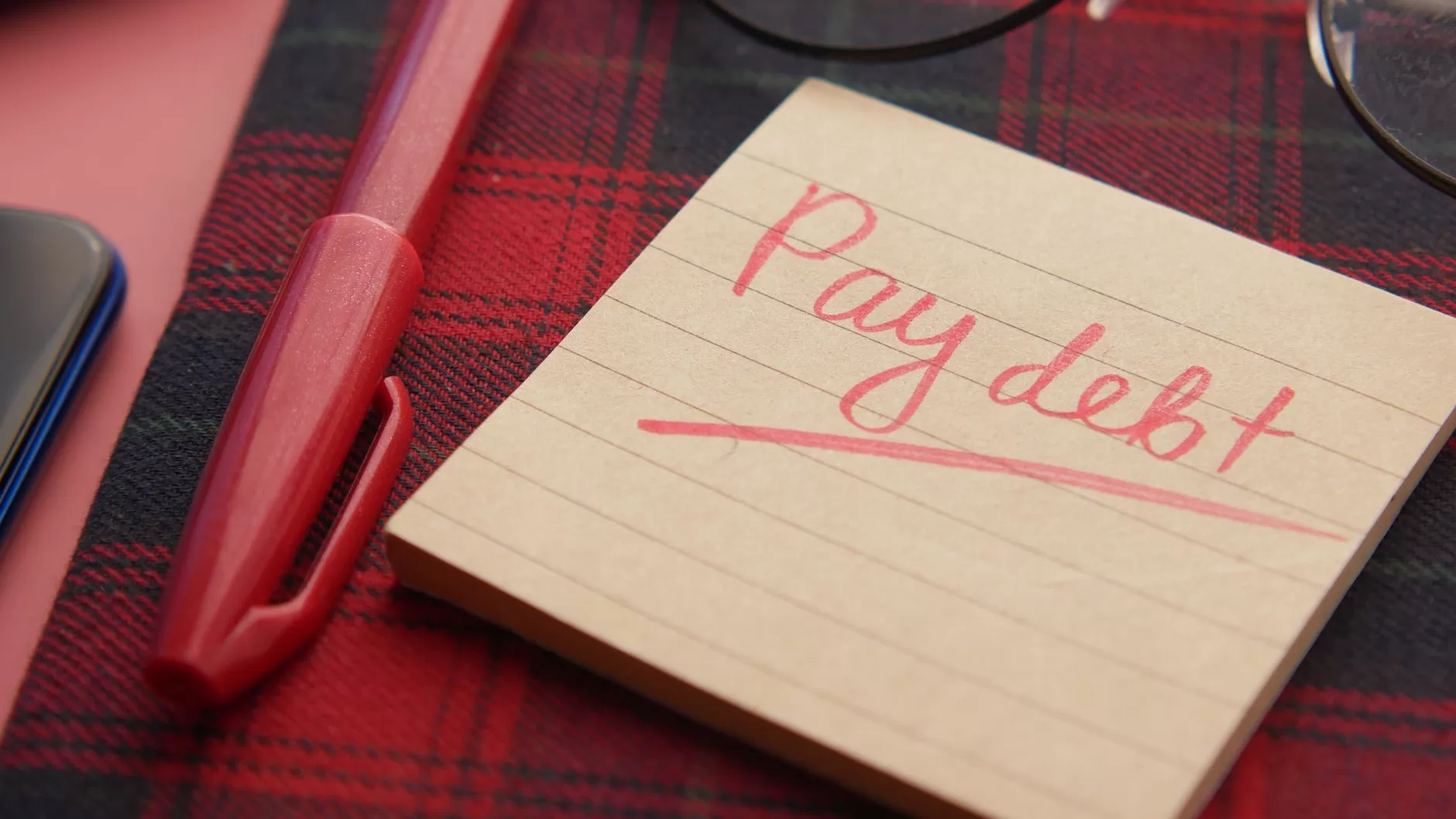
Good Debt vs. Bad Debt
People talk about debt as either good or bad. What does this even mean?
Bad debt is when you borrow money for a purchase that has no real value or is a depreciating asset. Borrowing cash for a TV or car would fall into the bad debt category. Why? Because a TV or car loses value the second you leave the store or lot.
Good debt is when you borrow money to purchase an item that has the potential to appreciate and outpace your borrowing cost in the long run. People lump student loans and mortgages into this category.
To me, any time you owe someone money, it stinks. And when you owe someone money and have to pay back more than you borrow in the form of interest, it stinks even more. There is no sugarcoating it. So, I believe the words “good” and “debt” should not be used together. However, there are exceptions to that rule, and a mortgage is one of those exceptions.
How many of us have hundreds of thousands of dollars lying about that we can use to buy a house outright? The only option for most people to purchase a home is to take on debt as a mortgage. What makes it the exception is that, in most cases, the value of your home should outpace your mortgage.
But, when you take out a mortgage, you do not own your home outright until the mortgage is completely paid off. If one day you decide to stop paying your mortgage, what happens? The bank repossesses the house and kicks you out. This is what is meant by secured debt.
What do you really own, then? You own the equity in your home.
Equity Ownership
Equity is the difference between the value of your home and what you still owe on your mortgage. If you sell your house, you take a portion of the proceeds and pay off what is left on the mortgage. Then, the remaining money after you pay off the mortgage is yours to keep. This is equity.
The equity in your home increases in two ways: by paying down the mortgage and as your home appreciates over time (hopefully). The equity in your house is the only thing you are entitled to if you sell your house tomorrow. For this reason, home ownership is more like equity ownership until you pay off your mortgage in full.
Your bank or mortgage company can foreclose on your house if you fall behind on your mortgage payments. You might get some of your equity back after they sell the home. However, since the bank is only entitled to the mortgage and foreclosure fees, it has no incentive to sell it for maximum profit. For this reason, the bank or mortgage company will be looking to sell quickly to recoup their money, which is why foreclosed homes are cheap.
Don’t get me wrong. It is your house. There is no lease and no landlord telling you what you can and cannot do. The only thing standing in the way of a home renovation is a permit from your city or town. You can paint the walls neon green or finish off your basement so it looks like an actual cave. However, the bank or mortgage company holds the mortgage, and your home is the collateral until it is paid off.
The True Cost of Your Home
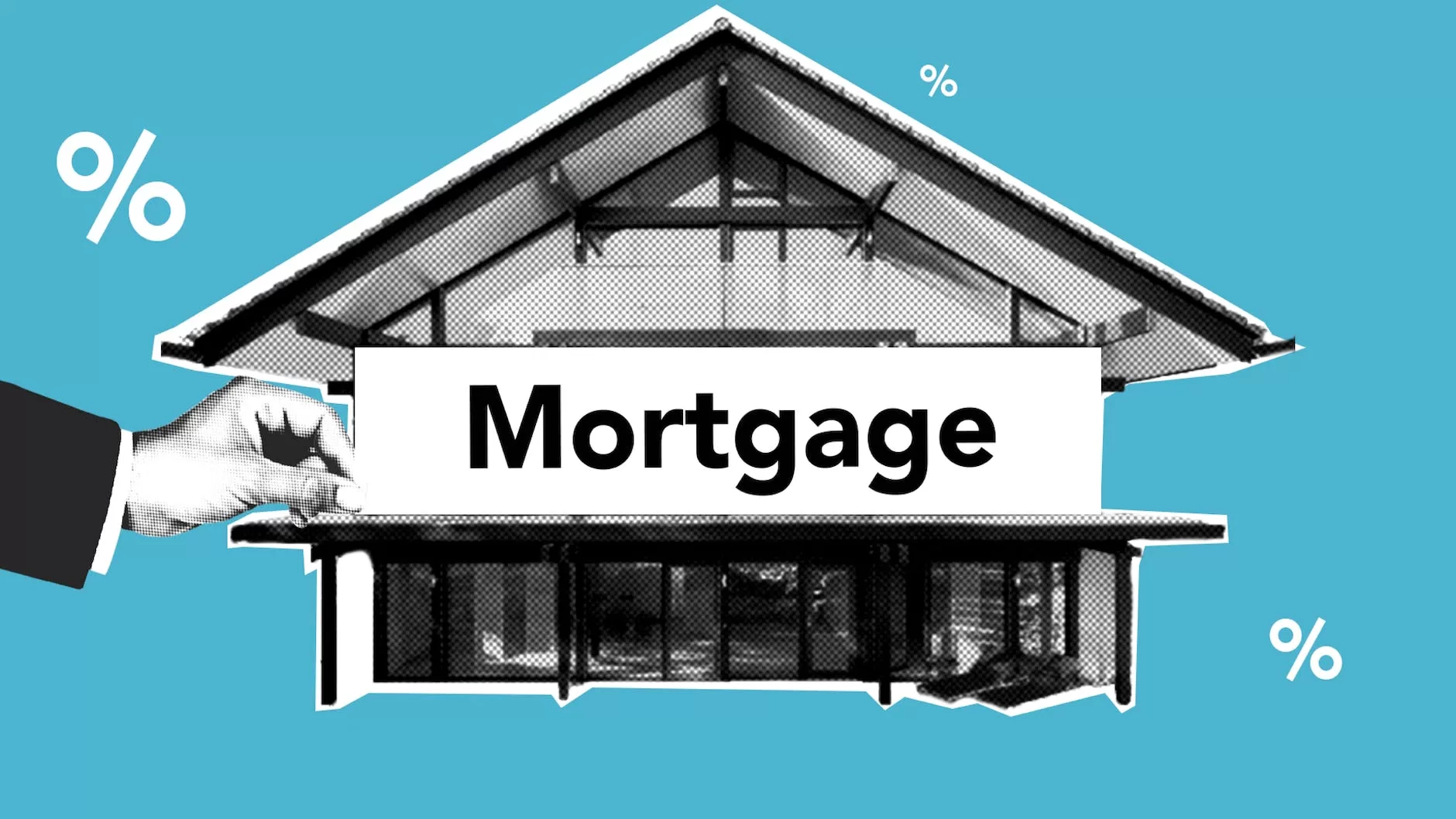
Your interest rate is one significant factor in determining whether paying off your mortgage early makes sense. A few years ago, it was common to see mortgage rates on a 30-year fixed mortgage at or below 3%. Interest rates on a 30-year fixed mortgage have increased to around 7%. That might seem high coming off a decade where rates were below 5%, but that 7% is around the historical average. What does this mean for your borrowing costs?
30-Year Fixed Mortgage at 3%
Let’s say it is 2021, during the covid pandemic. Rates are low, and you are looking to buy. After many bidding wars, you finally get an offer accepted on a home with a purchase price of $450,000. Because you have good credit, you were able to get that mortgage at a 3% interest rate.
In a perfect world, you are able to put 20% down, $90,000, and take out a 30-year fixed mortgage of $360,000 for the remaining balance. According to Bankrate’s mortgage calculator, you would pay almost $187,000 in interest over those 30 years, resulting in a total loan cost of over $546,000. Add back in the $90,000 you put down, and your total cost to purchase the $450,000 house would be almost $637,000.
30-Year Fixed Mortgage at 7%
Now let’s look at what happens if you bought the same house post the covid pandemic. Let’s imagine that everything remains the same except for the mortgage rate. The only difference now is that instead of a 3% mortgage, you are taking out a mortgage at a 7% rate.
According to Bankrate’s mortgage calculator, you will end up paying over $500,000 in interest if you purchased the same house at a 7% rate versus a 3% rate. This means you will be paying more in interest over the life of the loan than the actual purchase price. Your total cost of the loan will be over $860,000. The total home purchase cost would be nearly $950,000 over 30 years once you add back the $90,000 you put down.
Keep in mind your borrowing costs will only increase if you cannot put 20% down. If you cannot put 20% down, you must take out a larger loan and pay PMI. Both will significantly impact the amount you pay for your house over the life of the loan.
Seeing all these big numbers, you might wonder why anyone would not pay off their mortgage early. Especially if you consider how much you can save on the interest that costs hundreds of thousands of dollars over the life of the loan. Why wouldn’t you do it?
Reasons Not to Pay Off Your Mortgage Early
There are many valid reasons not to pay off your mortgage early, starting with debt.
You have other debt
Your mortgage should usually be the last debt you pay off. Putting extra toward your mortgage does not make sense if you have other debt or loans.
If you have credit card debt, student loans, car loans, or any other kind of debt, it is best to pay those off first. Your home’s value is likely to increase over time. So, you want to tackle the debts tied to depreciating assets first.
You Do Not Have an Emergency Fund or Have Limited Savings
Do not put extra toward your mortgage if you do not have a 3- to 6-month emergency fund. If you have an emergency and no emergency fund, you will end up taking on more high-interest debt to cover the unexpected costs. This is because any extra money you put toward your mortgage cannot be easily accessed, leading to the following reasons not to pay off your mortgage early.
Liquidity Risk if You Pay Off Your Mortgage Early
The equity in your house is not liquid. You cannot easily pull money out of your home. If you put extra toward your mortgage and need that money later, the only way to access the cash is by selling your house or borrowing against the equity. Both have substantial costs associated with them.
You cannot go to the bank and request your money back without strings attached. They will happily let you borrow money against your equity with interest. All they are doing is loaning you money based on the equity in your home. They are not giving you your equity back. Instead, you will have to pay that back at an interest rate that will likely exceed your mortgage rate. That is just debt chasing debt.
You have Limited Retirement Savings
Before prioritizing your mortgage payments, you must be adequately saving for retirement. The ideal amount may vary from person to person. A general guideline is to save 15% of your income, but it might be higher for some individuals. Perhaps 20% fits your situation, or you aim to maximize your 401K and IRA contributions.
Other Savings Goals
Maybe you plan to update your kitchen or go on a nice vacation. Or you might have kids and are trying to put money toward a 529 plan. Regardless of the expense, it is important to prioritize saving for them over paying down your house. You will not want to take on a HELOC or home equity loan for a home renovation if you can save for it ahead of time.
The key is to avoid taking on more debt to pay for things you could have planned and saved for. If you put more money toward your mortgage when you have other savings goals to prioritize, you will get stuck taking on more debt. Remember, your home is an illiquid asset. You can borrow against the equity, but it comes at a price in the form of interest.
Other Cons
There are other cons to consider that impact far fewer people, starting with an early payoff penalty.
Some mortgages will hit you with an early payoff penalty. So, you will need to consider the size of the penalty when considering paying off your mortgage early. You may also need to consider taxes.
If you are one of the rare people who still deduct mortgage interest, paying off your mortgage early will reduce or eliminate the amount you can deduct on your taxes. If this is you, you would want to consider the tax implications of putting more money toward your mortgage.
Alternatives to Paying Off Your Mortgage Early
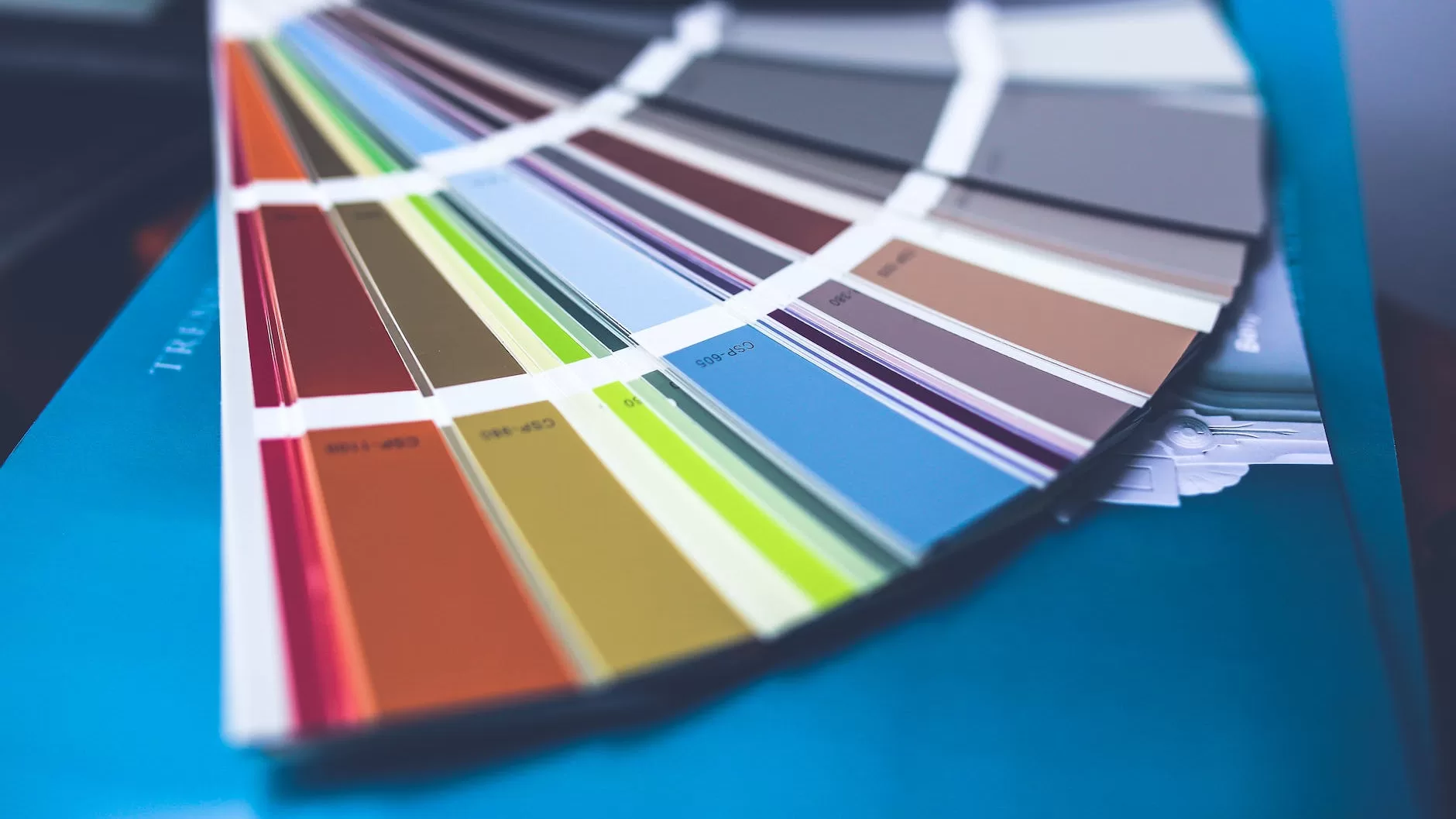
Let’s imagine you have a scenario where you have all your ducks in a row. You have a fully funded emergency fund and are actively saving for retirement. You also have adequate savings for an upcoming home renovation and are setting aside money in a 529 plan for your child. Your boss loves what you are doing at work and gives you a big raise. Now you have extra cash in your budget. What do you do with that extra money?
First, congratulations are in order if you find yourself with no debt other than your mortgage and are actively funding all of your savings goals. This is a great problem to have; one way to get there is by avoiding these 7 common money mistakes. So what should you do? Most financial experts would probably argue against paying off your mortgage early, and here is why.
Home Appreciates Independent of Whether You Pay Off Your Mortgage Early
Your home will appreciate in value independent of your mortgage and hopefully outpace your mortgage in the long run.
If the $450,000 house in the previous examples appreciates yearly at a 3% rate, it would be worth over $1 million after 30 years. If the same home over 30 years appreciates closer to 4% per year, your house would be worth almost $1.5 million. And if it appreciates at an even higher rate, you are looking at a home worth well over $1.5 million after 30 years. This is why for most people, their home becomes their largest source of wealth.
The bottom line is your mortgage has no impact on the appreciation of your house. In the long run, the value of your home should out-gain what you have paid toward the mortgage regardless of how quickly you pay it off. This is one of the main arguments against paying off your mortgage early. The rationale is that it’s more beneficial to allocate extra funds elsewhere. This is a valid point and something you must consider.
Other investments Offer Better Rates of Return
If you purchased a house or refinanced at low rates, there are now better investment options available that offer higher yields than your mortgage rate. Suppose you refinanced your mortgage at a 3% rate in 2021. The amount you save on interest by paying your home off early will be less than what you can earn in a high-yield savings account or CD, earning 4% or more.
Let’s return to our $450,000 house, where you put 20% down and took out a $360,000, 30-year fixed mortgage at 3%. At the start of the loan, you decide to put $100 extra toward the principal each month. After 30 years, you would have saved almost $20,000 in interest. Take the same $100 and put it into an investment, returning 4% annually, and after 30 years, you would have nearly $70,000.
Even if you are stuck with a 7% mortgage rate, you still may be better off putting any surplus you have toward investing instead of putting extra toward the mortgage. I have seen it argued that Investing in an S&P 500 index fund that has historically averaged annual returns of 10% trumps paying off your mortgage early. That is true. It is simple math. Ten is greater than seven, and when compounded over decades, the difference becomes huge.
However, investing in the market involves a significant amount of risk. Past performance does not guarantee future performance. Therefore, you must weigh that risk when deciding whether to pay off your mortgage early or invest. You have to be comfortable with taking that risk.
Reasons to Pay Off Your Mortgage Early
After reading all the reasons not to pay off your mortgage early, you might wonder why you would ever do it. There are several good reasons why some would do this. However, I cannot stress enough that you should only consider paying off your mortgage early if you are on top of your finances and you have diversified your accounts.
This entails having no additional debt aside from your mortgage. It also means having adequate savings and that you are actively saving for retirement. In my opinion, I would not consider doing it unless you are maxing out your retirement accounts. I would much rather put extra funds there than into my mortgage.
Then, you need to know what matters to you most. Is it investing any budget surplus to maximize your returns? Or is it the peace of mind knowing you are paying off your house ahead of schedule? If you choose to pay off your mortgage early, you must be willing to forego other opportunities that may offer higher returns in exchange for the security and guaranteed return of paying off your home.
Over 30 years, that trade-off can be significant. You may be missing out on hundreds of thousands of dollars or more over 30 years if you opt not to invest.
So why would you want to pay off your mortgage early?
Guaranteed Rate of Return
One way to achieve a guaranteed rate of return is by paying off your mortgage early. For example, if you put an extra $100 toward the principal every month, that is $100 less than you have to pay interest on. If your mortgage interest rate is 3%, you are effectively earning a 3% rate of return on your $100 investment. If your mortgage were closer to 7%, it would be like making a 7% rate of return.
No matter your mortgage rate, every bit extra put toward your principal can save you thousands of dollars in the long run. That is a guaranteed rate of return.
Peace of Mind When You Pay Off Your Mortgage
Based purely on math, paying off your mortgage early may not be your best option. However, it still offers something very valuable: peace of mind. The value associated with the peace of mind of owning your home outright is different from person to person. For you, that piece of mind might be worth more than the 10% rate of return you might get in the S&P 500. For others, it may not be worth the 4% they can get on a long-term CD.
No More Monthly Mortgage Payments
For most people, their home is their biggest asset but also their biggest monthly expense. Once you pay off your mortgage, you no longer have to worry about such a large monthly payment. Yes, you will still have to pay insurance and taxes. But the bulk of your monthly payment is your principal and interest. Therefore, your free cash flow will increase substantially.
Let’s go back to the example of your $450,000 home. If you have a 30-year fixed-rate mortgage at today’s rate of 7%, your monthly interest and principal payment would be close to $2,400. Every year you shave off the mortgage will increase your free cash flow by $28,800 per year once the mortgage is paid off.
So, by putting extra money toward the principal in your mortgage, you may be making less than if you placed it in higher interest-bearing alternatives. However, you will make up for some of it on the back end when your mortgage is paid off and your cash flow increases.
Why am I paying off my mortgage early?
As for me, paying off my mortgage early gives me peace of mind, but it is not my main reason for doing so.
The main reason centers around retirement.
I purchased a house later in life and don’t want to carry a mortgage into retirement. To achieve that, I plan on making extra payments towards my mortgage early on. This strategy will help me get the best value for my money.
Why?
In the beginning, most of the mortgage payments go towards paying off the interest rather than the principal. So, if I can manage to put in more money towards the principal at the start, it will have a greater impact later on.
After a few years of paying extra, this will align the end date of my mortgage with my retirement timeline. At that point, I can decide to continue to put extra toward the mortgage or shift it into investments. I can do all this because I have a plan.
I have set financial goals and put a lot of value on not having debt and living a very frugal life. In addition to this, I have made sure to diversify my investments and maximize my retirement accounts. This has put me in the position to be able to make this decision.
So, Should You Pay Off Your Mortgage Early?
What about you? Should you pay off your mortgage early?
In the end, it’s all up to you to decide whether or not you want to pay off your mortgage early. But before you make that decision, it’s essential to look at your finances.
I suggest paying off all other debts first, building up an emergency fund, and setting enough money aside for retirement and other savings goals before putting any extra cash toward your mortgage. And, if it applies to your situation, don’t forget to consider a 529 plan.
Once your finances are in order, you need a plan. Paying off your mortgage early just for the sake of doing so, is not a plan. You need to make sure it aligns with your long-term financial goals. Create deadlines, put numbers to it, and then step back and see if it makes sense. I suggest seeking a professional opinion if you do not know what is right.
Do not pay off your mortgage early just because a book suggests it as the next step in your financial journey. In fact, doing so may cause more harm than good to your finances. If you’re uncertain about what to do, then it is probably best to save the money or invest it in a high-quality, low-cost S&P 500 index fund. Based purely on mathematics, this is probably the better option for most people rather than putting extra money towards their mortgage.
In the end, you have to determine what holds greater value to you. Is it the peace of mind of knowing your house will be paid off quicker? Or is it maximizing your rate of return on investments and savings?
The choice is yours to make, but never forget you can always seek professional help.

